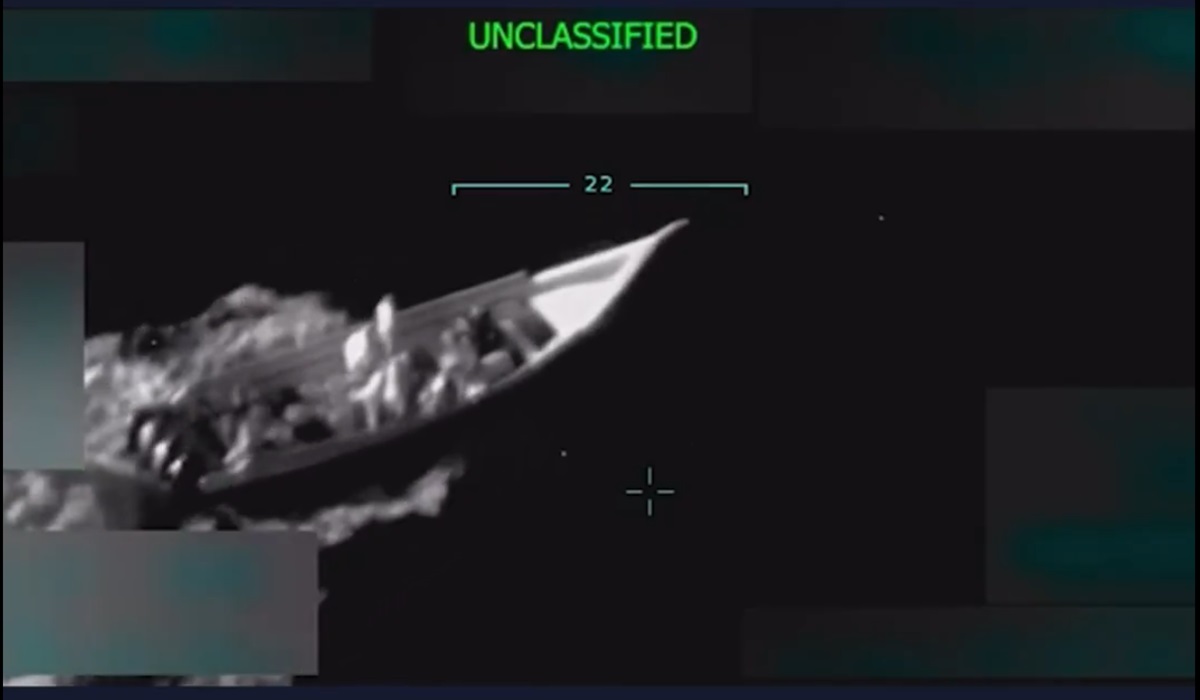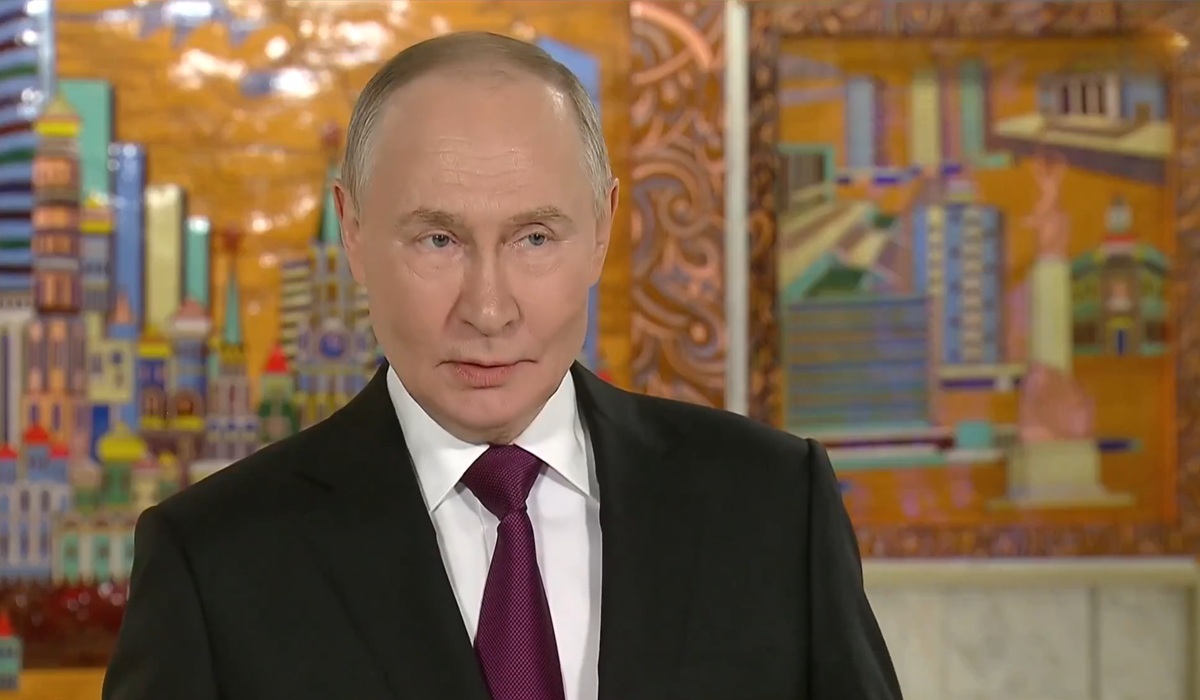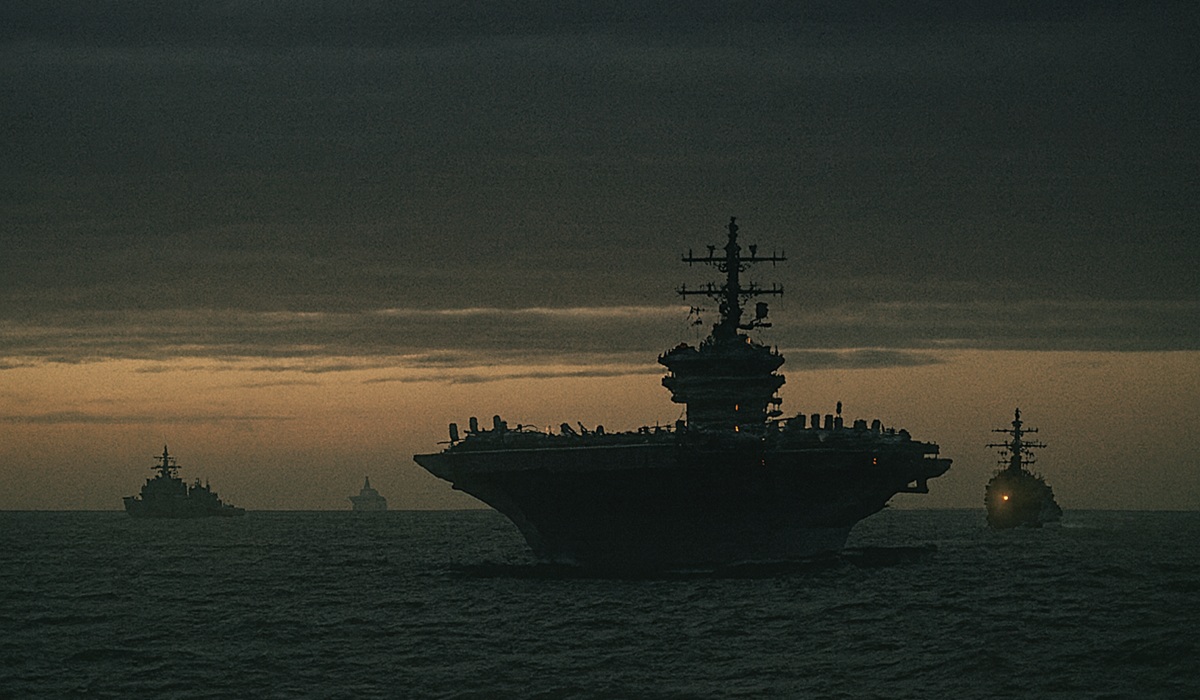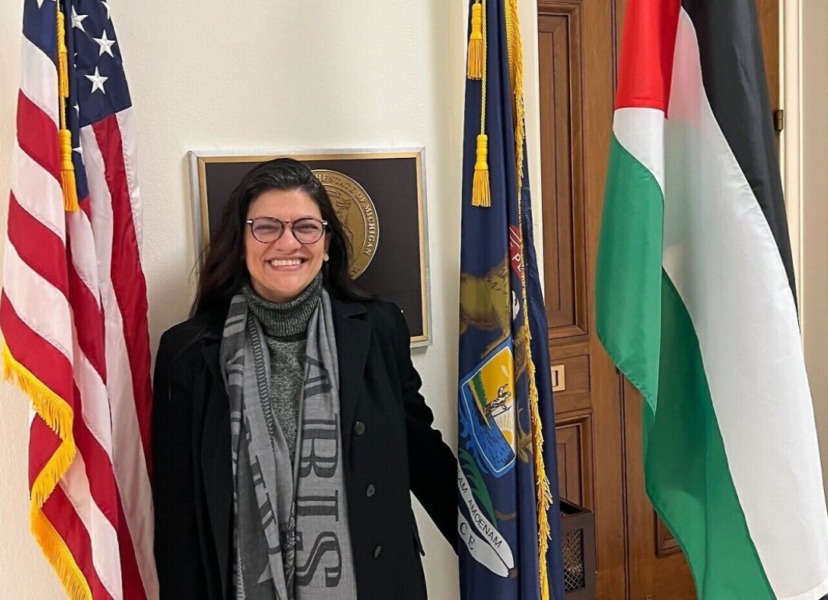By: Donovan Martin, Sr. Editor in Chief
The United States under President Donald Trump has shown time and time again that if it is not at war, it feels restless, uneasy, even irrelevant. A country armed with the largest military machine on earth, and a leader who thrives on confrontation, is now steering dangerously close to a full-blown conflict with Venezuela. Trump has never concealed his desire for Venezuelan oil, nor his disdain for Nicolás Maduro’s government, and every move in recent months points to the United States manufacturing a pretext for military escalation in South America.
The latest provocation is as reckless as it is familiar. The United States Navy deployed an entire battle group to the Caribbean, a move so disproportionate that no sober observer could view it as simple “counter-narcotics” operations. Then came the sinking of a Venezuelan boat. Washington declared, without hesitation and without evidence, that the vessel belonged to a drug cartel. Eleven lives were lost in that encounter, yet no proof was presented to the public, no independent verification allowed. Once again, Americans were told, “Trust us.” Trust us, as they said in 2001 when the public was assured that invading Afghanistan would eradicate terrorism. Trust us, as they insisted in 2003 when claims of weapons of mass destruction in Iraq dragged the world into a twenty-year disaster. That trust cost millions of lives, trillions of dollars, and destabilized entire regions. Now the same tired line is being rolled out to justify aggression in Venezuela.
Even if one were to take the U.S. at its word and accept that this was in fact a drug boat, the official story makes little sense. In nearly every major drug seizure in recent decades, the U.S. has followed a consistent playbook: board the vessel, detain the crew, seize the contraband, and then use the arrests and the captured material as stepping stones toward larger investigations. Drugs are often tested and analyzed, not merely to confirm their presence but to identify origin, purity, and supply chain fingerprints—clues that help map the networks. Suspects are frequently pressured into cooperating, flipped into informants, or used to infiltrate the bigger fish further up the chain. That is the entire logic of intelligence-driven counter-narcotics operations.
So why was it not followed here? Why was no attempt made to capture, interrogate, or investigate? Why was the supposed contraband not examined for consistency with other seizures to establish connections? If this were truly about drug enforcement, the U.S. would have gained far more from boarding the vessel than from blasting it out of the water. Yet none of that happened. No intelligence was gathered, no networks exposed, no cartel leaders threatened. This was not an anti-drug operation. It was a show of force, designed to send a message not to traffickers, but to the Venezuelan state. The sinking of the boat was not a tactical strike against crime; it was theater, a deliberate escalation dressed up as law enforcement.
And here lies another contradiction: if Washington knew this boat was destined for the United States, then by definition it had intelligence on the supply chain. That means it knew who was sending it, where it was headed, and perhaps who was expecting delivery. With that knowledge, law enforcement could have tracked the shipment, followed it into port, arrested operatives inside U.S. borders, and seized a treasure trove of intelligence leading to arrests across the network. Instead, they sank it. Information was destroyed rather than preserved. This was never about dismantling a cartel. It was about manufacturing a justification for aggression.
The problem is not that the United States does not know better—it does. The problem is that war is woven into the DNA of its foreign policy. For Trump, Venezuela is not about democracy, liberty, or counter-narcotics. It is about oil. When Trump openly declared that the United States should have “taken the oil” in Iraq, he revealed a truth most presidents veil in diplomatic rhetoric. His administration, guided by neoconservative hawks and energy interests, has for years sought to topple the Venezuelan government in order to gain control of the largest proven oil reserves on the planet. Sanctions have crippled Venezuela’s economy, not to free its people, but to soften the nation for regime change. Washington even attempted to install Juan Guaidó as a “president-in-waiting,” a move so audaciously colonial that it was laughed out of legitimacy by most of the world. But elections are for people to decide. America claims it does not interfere in foreign elections, yet history shows otherwise.
The record is long and undeniable. In Iran, 1953, the CIA orchestrated a coup to topple Mohammad Mossadegh after he nationalized the country’s oil industry, replacing him with the Shah, a dictator friendly to U.S. and British petroleum interests. In Guatemala, 1954, another CIA-backed coup ousted Jacobo Árbenz after his land reforms threatened the holdings of the United Fruit Company. In Chile, 1973, the United States backed a bloody military coup that overthrew democratically elected Salvador Allende and installed Augusto Pinochet, whose reign of terror left thousands dead.
In Nicaragua throughout the 1980s, Washington funneled money, arms, and training to the Contra rebels in their war against the Sandinista government, despite the Contras being notorious for human rights abuses. Congress had even banned such support, but the Reagan administration circumvented the law through the Iran-Contra scandal, selling arms to Iran and using the proceeds to bankroll the war. This was not democracy-building—it was sabotage of a sovereign nation because its government dared chart an independent course.
Fast-forward to Libya in 2011, where the U.S. and NATO cloaked their intervention as a humanitarian mission to “protect civilians.” In reality, it was regime change. Muammar Gaddafi was brutally killed, the state collapsed, and Libya spiraled into chaos. Slave markets reappeared in the streets, terrorist groups flourished, and the country remains fractured to this day. That is what American “liberation” looks like.
These are not anomalies. They are the rule. The same United States that cries foul over alleged interference in its own elections has made a career of undermining the democratic choices of other nations.
Let it be absolutely clear: this is not an endorsement of Nicolás Maduro or any Venezuelan president. This is not about choosing sides in Venezuelan politics. It is about recognizing the United States’ insatiable appetite for war, for domination, for resources. That is the issue. That is the crisis.
When economic sabotage and diplomatic isolation did not deliver victory, the Trump administration escalated to threats, naval blockades, and now acts of lethal force on the seas. These are not the tactics of a nation concerned with justice. They are the actions of a bully, one desperate to provoke a reaction, to conjure up a casus belli that will open the floodgates for intervention. Trump has even placed a bounty on President Maduro’s head, accusing him of drug trafficking and treating a foreign head of state as if he were a cartel boss. Under international law, one country cannot simply put out a “wanted” poster on another nation’s leader. It is an open invitation to assassination and chaos, and it demonstrates just how little regard Washington has for the rules it demands others follow.
For those who believe the United States’ sudden zeal for counter-narcotics in Venezuela is genuine, one need only look south and west. Mexico’s cartels operate with levels of violence and sophistication unmatched anywhere in the hemisphere, and yet no U.S. battle groups patrol the Gulf of Mexico. Colombia has long been one of the largest producers of cocaine on the planet, with deep and documented connections between cartels and political elites, yet Washington continues to send Bogotá military aid rather than sink its ships. If stopping drugs were truly the mission, these would be obvious targets. But Colombia is a U.S. ally, Mexico a crucial trade partner, so their criminal networks are tolerated.
Even more damning is the fact that the United States does not need to cross borders to confront the drug epidemic. The world’s biggest market for narcotics is the United States itself. The opioid crisis—fueled not by cartels but by pharmaceutical companies operating legally under U.S. law—killed hundreds of thousands of Americans, and yet no carrier strike group was deployed against Purdue Pharma or Johnson & Johnson. Instead, Washington settled for fines and wrist slaps, all while communities across the nation were hollowed out. The hypocrisy could not be more glaring: a Venezuelan boat is sunk with military firepower under the pretense of fighting drugs, while the biggest pushers in U.S. history receive government bailouts and protection.
The truth is that the U.S. government has long depended on drug money, whether through covert complicity or outright facilitation. During the 1980s, the CIA turned a blind eye to cocaine trafficking in Central America as long as the profits funded right-wing paramilitaries aligned with Washington’s interests. Reports and investigations have shown time and again that drug networks thrive not in spite of U.S. power, but often because of it. Dirty money flows through American banks, oiling the gears of Wall Street and financing the same system that now points its guns at Venezuela. Washington knows precisely where the drug dealers are—in Colombia, in Mexico, in Miami, in New York—but to target them would mean exposing the financial lifelines that keep the empire running. Far easier to demonize a government Washington already wishes to overthrow.
Trump’s pursuit of war with Venezuela is not just another chapter in America’s long history of intervention. It is a culmination of everything that has made U.S. foreign policy a global menace: greed dressed as morality, violence justified as necessity, and empire cloaked as security. The people of Venezuela have already endured sanctions that have denied them medicine, food, and the ability to trade on the global market. They have resisted coup attempts, sabotage, and propaganda campaigns. Now they face the very real possibility of bombs and bullets, unleashed not to liberate them but to strip them of sovereignty and resources.
The United States does not want de-escalation. It does not want negotiation. It wants what it has always wanted: control. Trump has made it clear that he will not stop until Venezuelan oil is within American grasp. Every death, every shattered life, every destabilized country is simply collateral damage in the pursuit of profit. Washington thrives on war because peace offers no dividends. And when the justification for war is flimsy, it manufactures one—be it phantom weapons of mass destruction, shadowy terror cells, or faceless drug cartels.
What is happening in Venezuela is not about drugs. It is about empire. The U.S. appetite for blood, for oil, for natural resources, is as urgent as it is insatiable. And it is despicable. If Washington truly wanted to combat drug trafficking, it would dismantle the networks within its own borders, cut the lifelines of cash that flow through its banks, and end the complicity of its intelligence agencies. It would face down cartels in Mexico and Colombia with the same ferocity it reserves for weaker nations. But it will not, because drugs are not the enemy. Sovereign nations that refuse to kneel are.
The sinking of a Venezuelan boat should be recognized for what it is: a warning shot in a campaign designed to provoke, escalate, and conquer. Trump is dragging the United States toward yet another disastrous war, one that will kill thousands and enrich only the powerful. Venezuela is not a threat to America’s security. But its oil is a prize Trump cannot resist. And for that, he is willing to gamble lives, laws, and even global stability. The world has seen this play before, and it ends the same way it always does—with devastation, and with Washington standing over the wreckage, pockets full, hands stained with blood.









